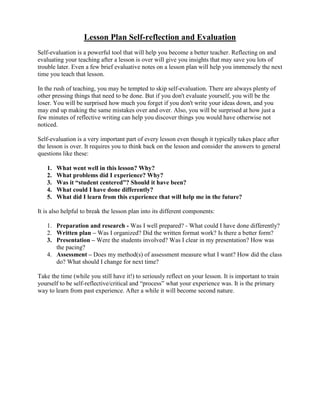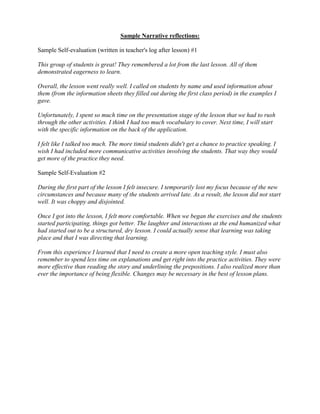Self-evaluation is an important tool for teachers to improve. Reflecting on lessons allows teachers to identify what went well, problems that occurred, and ways to improve future lessons. Even brief notes on a lesson plan can help a teacher the next time they teach that lesson. When evaluating a lesson, teachers should consider how prepared and organized they were, how the students responded, and whether the assessment measured the intended learning. Taking just a few minutes to self-reflect after each lesson, either through writing or using an assessment form, can help teachers discover things they did not notice and avoid repeating mistakes. Regular self-evaluation is key to continuously learning from experience.


